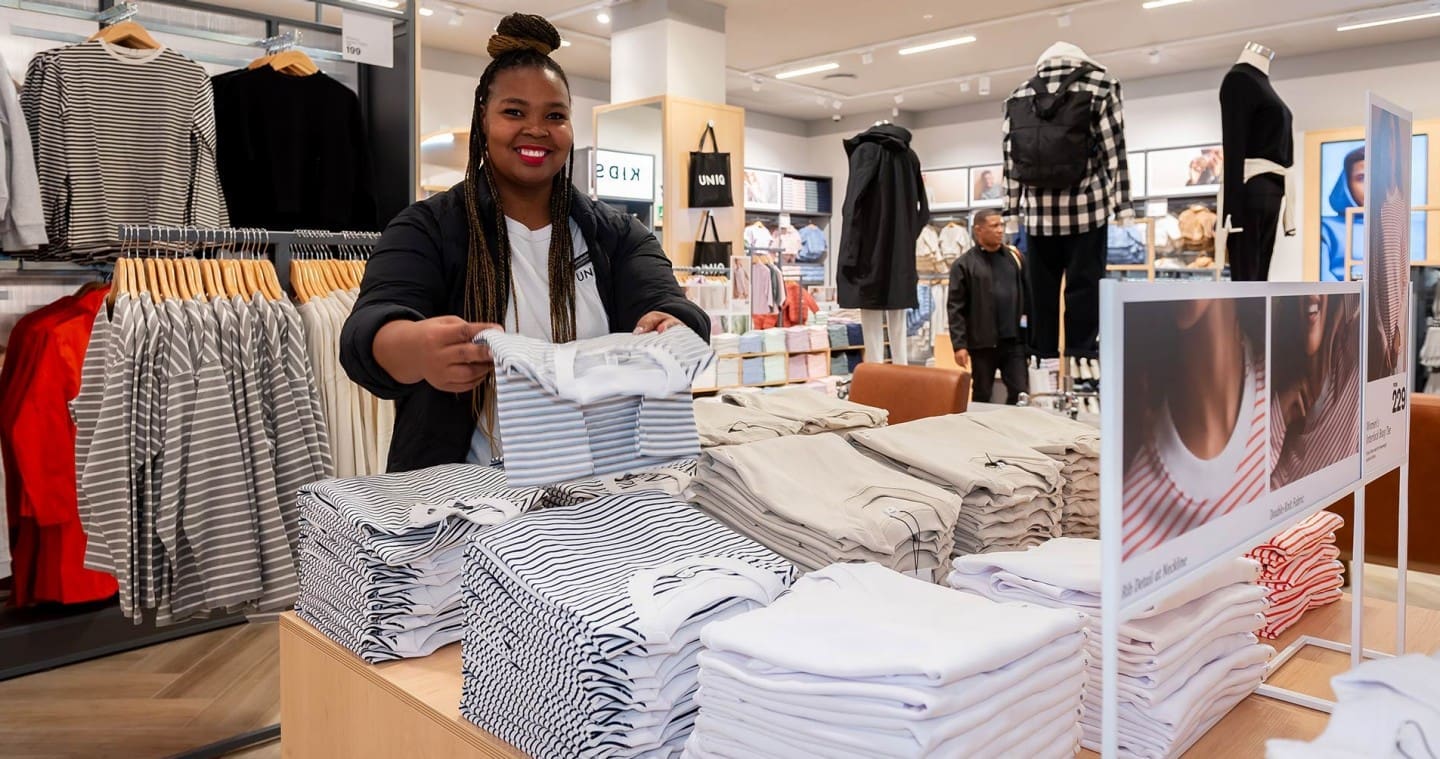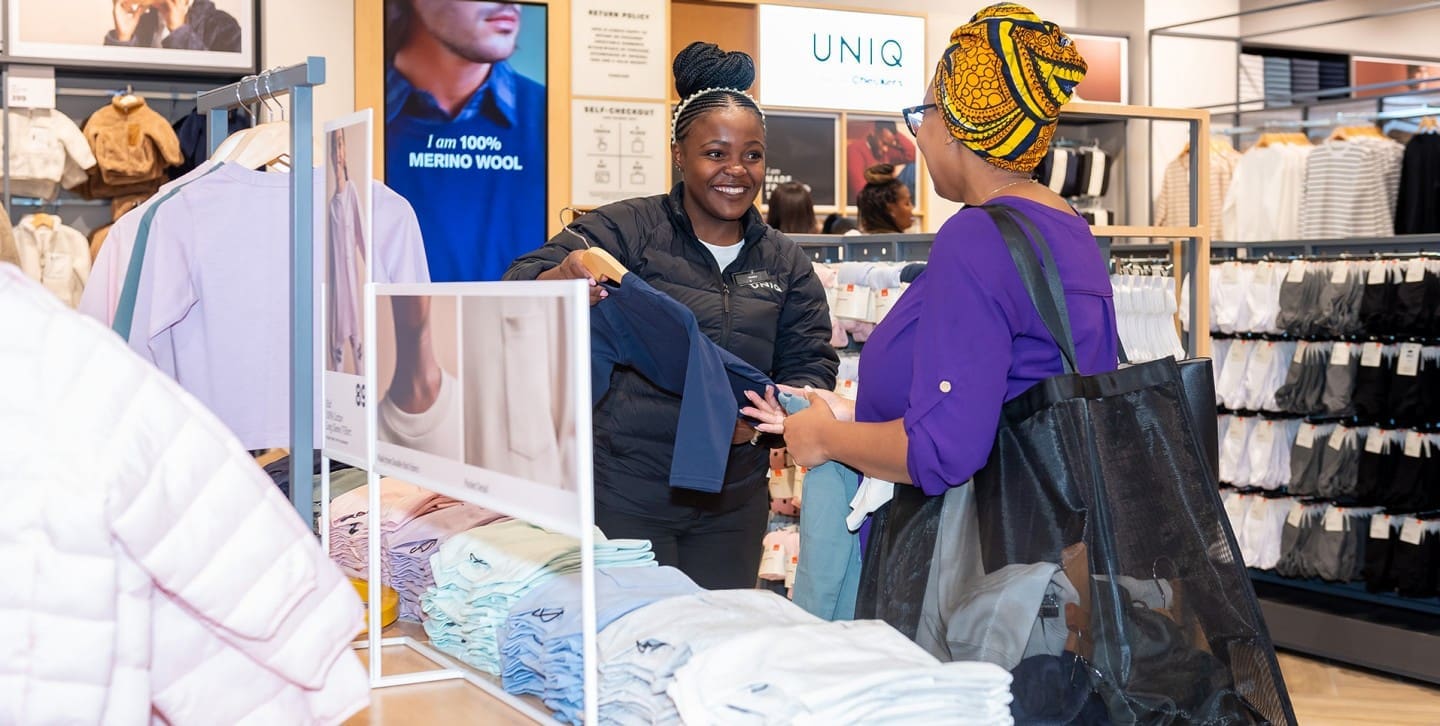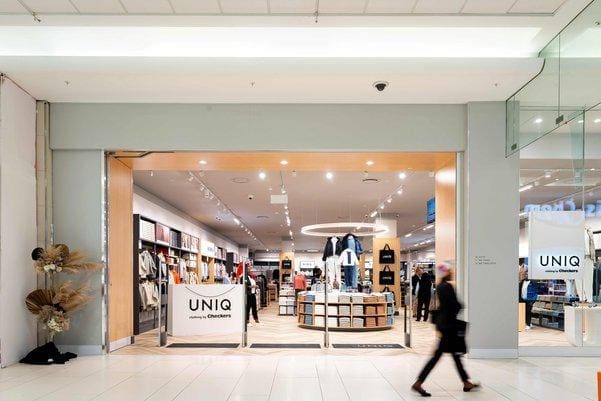Shoprite Group recently opened its 20th UNIQ clothing shop at Sandton City Shopping Centre and promises to open another 20 shops by 2024. Last month, Shoprite Group-owned clothing brand UNIQ by Checkers opened another shop at the brand new Linton’s Mall in Pretoria East – making it the 20th shop since the launch of UNIQ in 2023.
The company intends to open new shops in regional malls, regional shopping centres and very select premium shopping centres.
The new clothing shops under the UNIQ brand have been planned with RFID-based self-service checkouts instead of traditional checkouts.
This will provide customers with a seamless and cashless shopping experience.
UNIQ is the first clothing retailer in South Africa to offer a self-service checkout that utilises smart tags and advanced RFID (Radio Frequency Identification) technology. This allows customers to easily scan and pay for their items and also allows them to select items in-store and simply pay automatically when they leave the shop.
Shoprite Technology, GK, and RFID technology provider Nedap have developed RFID-based self-service checkouts, the first RFID self-service checkout in Africa. This allows a customer in the UNIQ shop to place their goods in the self-checkout bays.


Unlike self-service checkouts in many shops, UNIQ customers do not have to scan individual items or look up prices on a screen — they can simply drop their items into a bin. Since there is no need to scan the barcode, all items will appear immediately on the display of the self-service checkout screen and payment will be made by card.
The integration means that RFID tags are used for both item identification and electronic article surveillance (EAS). The unique identification number of items paid for at the self-service checkout is transmitted to a cloud-based system, which ensures that an alarm is only triggered if an unpaid item passes through the shop’s security gates.
Speaking to TechFinancials, Leighe Ogle, National Operations Manager at UNIQ, said: “What’s amazing is that our customers are really excited about the experience of cashless self-service checkouts.”
He added that UNIQ customers love the seamless way to pay for garments.
“We have staff on hand to help customers who are uncomfortable with RFID-based self-service checkouts instead of traditional checkouts,” Ogle said.
RFID is a breakthrough technology because it provides real-time insight into inventory, streamlines operations, improves the customer experience and reduces shrinkage. Ultimately, RFID is a technological tool that provides valuable information.
The estimated global market volume for RFID will be $23.8 billion by 2030. Sixty-one percent of retailers plan to implement RFID in their shops by 2026.
The most common use case for RFID is to improve inventory management, but the use of RFID at self-service checkouts also offers huge benefits to UNIQ shops.
Ogle says that the use of RFID at self-checkout machines enables UNIQ to focus intensively on the needs of customers, and for staff to spend enough time on the sales floor to assist customers with their needs.
He added that UNIQ has also created a way for those who do not have a debit card to pay for their clothing items. “We offer them the option to put money on a gift card at our neighbouring sister shop, Checkers, and they can still shop in our shops.”


In today’s fast-paced retail environment, where consumers have the ability to buy instantly from your competitor even while standing in your shop, RFID is a game changer.
RFID has rapidly evolved from a technology that was only used on the fringes of retail to a global technology that is delivering business results to retailers everywhere. In the eight years that Accenture has been studying the use of RFID in retail, it has found that RFID is not only here to stay, but is growing.
Despite its already routine and growing use — 61% of retailers plan to use RFID by 2026, according to the latest global study by Zebra Technologies – experts believe the technology is still underutilised. RFID could help to solve the problem of shrinkage and theft, which is a major issue for the industry.
More than 60% of shrinkage can be attributed to reasons within a retailer’s own operations. With RFID technology, retailers and brands can collect and integrate information about where an item is or where it has gone, when it was sold and at what price, whether it has been lost and much more.
